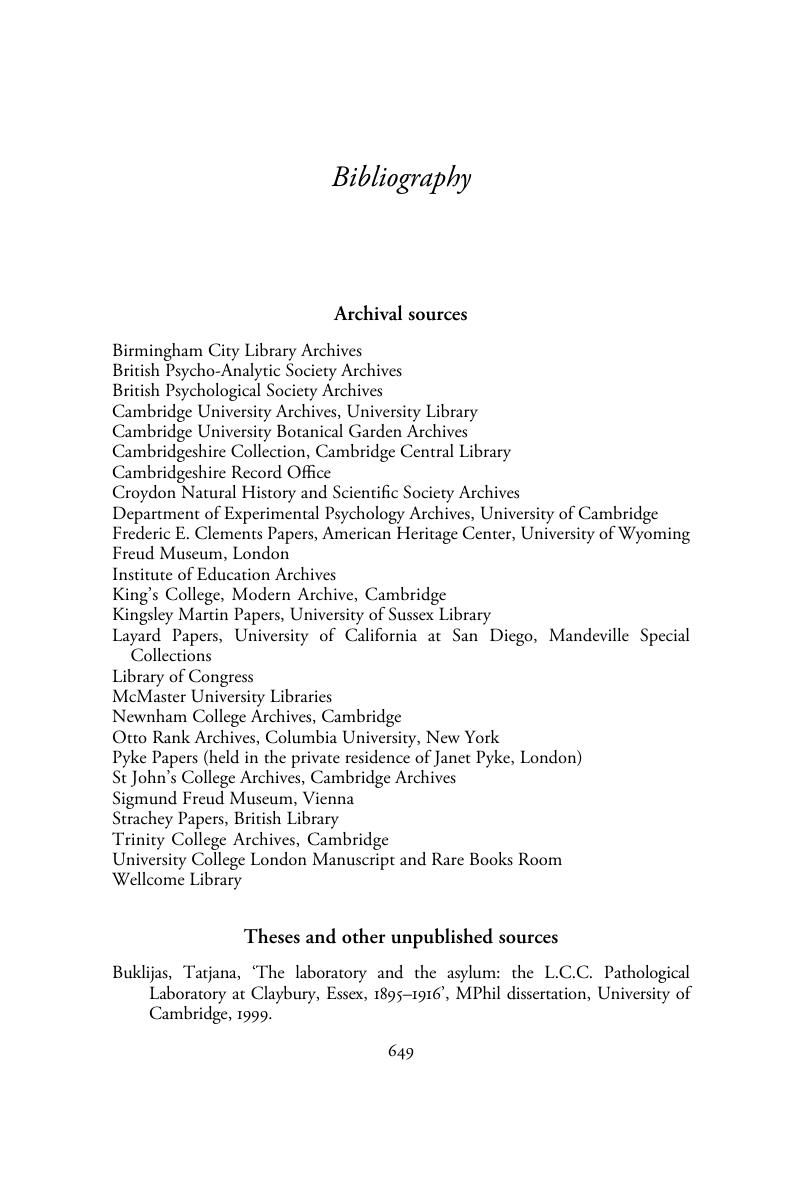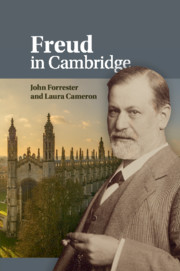Book contents
- Freud in Cambridge
- Frontispiece
- Freud in Cambridge
- Copyright page
- Contents
- Illustrations
- Preface
- Acknowledgements
- Abbreviations
- Chapter 1 Introduction
- Chapter 2 Tansley’s Dream
- Chapter 3 W.H.R. Rivers, the English Freud
- Chapter 4 Becoming Freudian in Cambridge: Undergraduates and Psychoanalysis
- Chapter 5 Discipline Formation – Psychology, English, Philosophy
- Chapter 6 The 1925 Group
- Chapter 7 The Malting House Garden School
- Chapter 8 A Psychoanalytic Debate in 1925
- Chapter 9 Bloomsbury Analysts
- Chapter 10 Freud in Cambridge?
- Bibliography
- Index
- References
Bibliography
Published online by Cambridge University Press: 16 March 2017
- Freud in Cambridge
- Frontispiece
- Freud in Cambridge
- Copyright page
- Contents
- Illustrations
- Preface
- Acknowledgements
- Abbreviations
- Chapter 1 Introduction
- Chapter 2 Tansley’s Dream
- Chapter 3 W.H.R. Rivers, the English Freud
- Chapter 4 Becoming Freudian in Cambridge: Undergraduates and Psychoanalysis
- Chapter 5 Discipline Formation – Psychology, English, Philosophy
- Chapter 6 The 1925 Group
- Chapter 7 The Malting House Garden School
- Chapter 8 A Psychoanalytic Debate in 1925
- Chapter 9 Bloomsbury Analysts
- Chapter 10 Freud in Cambridge?
- Bibliography
- Index
- References
Summary

- Type
- Chapter
- Information
- Freud in Cambridge , pp. 649 - 680Publisher: Cambridge University PressPrint publication year: 2017



